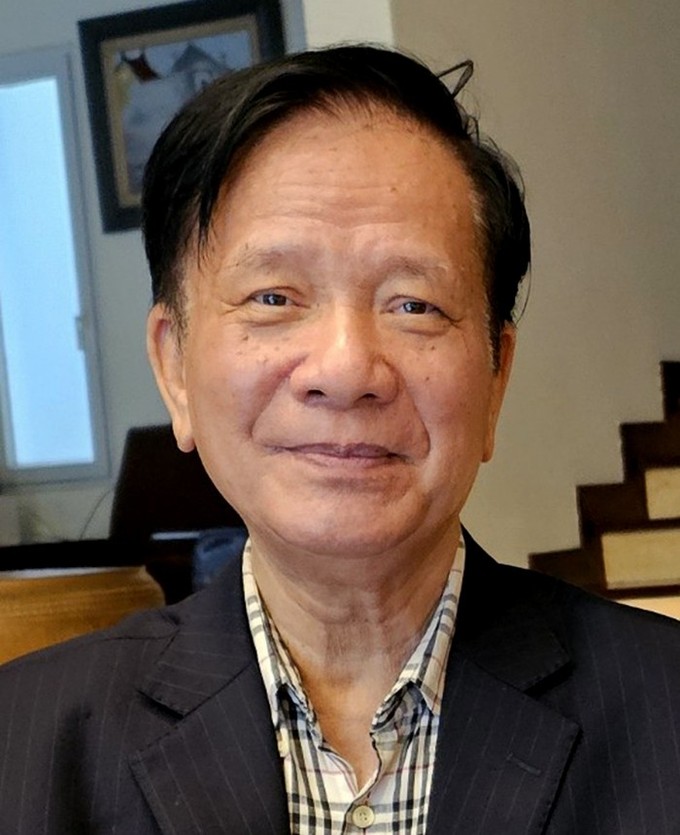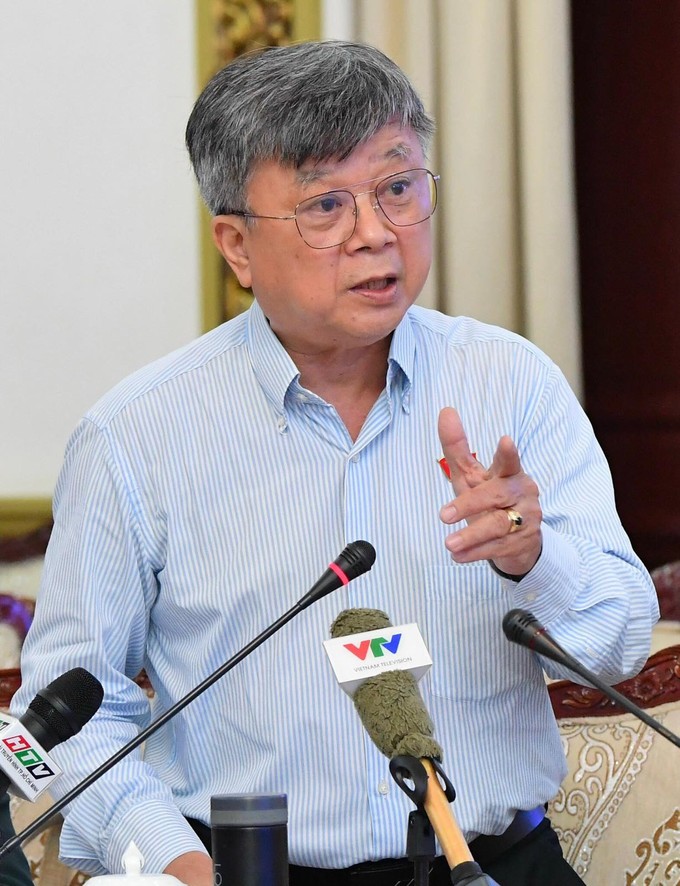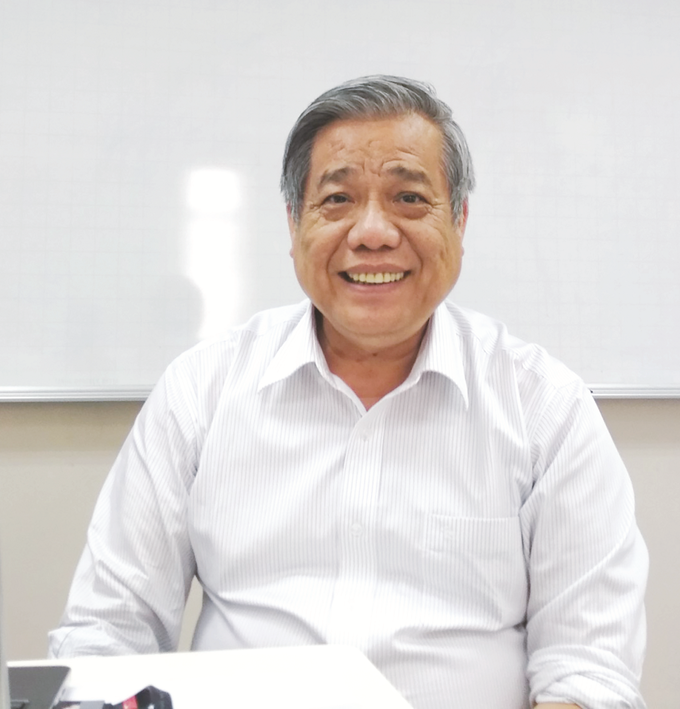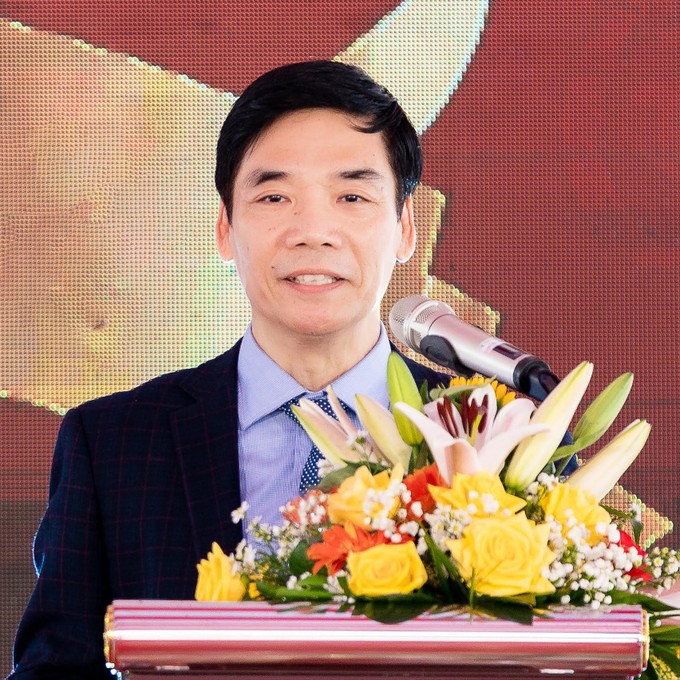National development depends on its people
Before the Year of the Dragon, the SGGP Newspaper organized a roundtable discussion on the national governance approach centered around the people as the foundation, as well as the current position and fortune of the country.
The panel included key figures such as Mr. Vo Hong Phuc, former Minister of Planning and Investment; Professor-D.Sc. Vu Minh Giang, Vice Chairman of the Vietnam Historical Science Association; Dr. Doan Duy Khuong, Chairman of the ASEAN Business Advisory Council (ASEAN BAC) from 2010 to 2020; and lawyer Truong Trong Nghia, Deputy of the 15th National Assembly from Ho Chi Minh City Delegation of NA Deputies.
Mr. VO HONG PHUC, former Minister of Planning and Investment: Vietnam has advantages for gaining a head start through strategic shortcuts
Positioning oneself on the global stage is of utmost importance. With its geopolitical position, Vietnam is currently regarded as the most strategically advantageous country among ASEAN nations. Vietnam possesses numerous advantages for gaining a head start through strategic shortcuts in the development of digital and green economy.

As a latecomer, Vietnam can easily inherit and innovate technologies, with various choices in models and approaches that suit the country's economic characteristics. In contrast, Japan faces challenges during its digital economic transition due to an aging population and corporate models, both in terms of people and enforcement mechanisms. Vietnam stands apart with its youthful and highly adaptable population.
In 1995, during our collaboration with Japan on a six-year project to improve Vietnam's business investment, a prominent Japanese macroeconomics professor advised us that the focus for Vietnam should be on developing "manufacturing enterprises" with specific products capable of international competition. The product of that enterprise must be of “identity and positioning” for the nation.
Back then, Vietnam's state-owned economy held sway, leading our discussions on "manufacturing enterprises" to primarily center around State-owned enterprises. Our focus was on these enterprises for the establishment of related industries, including steel, cement, and electricity. However, the outcome revealed that, despite years of effort in constructing business models, State-owned enterprises struggled to develop products with real competitive strengths, achieving only average results or even facing losses.
On the contrary, the private or semi-private enterprise model proved to be more effective. Honestly evaluating the situation allows us to strategically reposition ourselves in the regional and global economy. This, in turn, enables us to adopt the right and appropriate approaches and directions.
Lawyer TRUONG TRONG NGHIA, Deputy of the 15th National Assembly: Exploring untapped and overlooked potentials
The master national development plan for the 2021-2030 period, with a vision to 2050, has outlined ambitious goals. By 2030, the target is to reach an average GDP per capita of approximately US$7,500. By 2050, Vietnam aspires to become a developed, high-income country, with an anticipated average GDP per capita ranging between $27,000 and $32,000.

What does Vietnam need to do to surpass challenges and turn aspirations into reality? In my opinion, it is crucial to fully exploit the potential and resources that have been untapped or overlooked. Among these, the most significant and robust potential lies within the people, within society, and, in general, in humans. If we can establish a diligent team of officials and public servants with sufficient competence and integrity, adhering to the principle of "People as the foundation," our country will undoubtedly overcome any obstacles and challenges.
The current position, fortune, and potential of the country are now exhibited through objective figures and internationally recognized events. According to the International Monetary Fund (IMF), in 1986, Vietnam's GDP was approximately $8 billion, placing it just above Myanmar with $5.15 billion among the ten Southeast Asian countries. However, over 36 years, Vietnam's GDP has surged by a factor of 50, reaching around $406 billion and securing a position among the top 40 largest economies globally. In 1986, the average GDP per capita was $235, and, by 2022, it exceeded $4,000.
Emerging from a history of isolation and sanctions, Vietnam has forged diplomatic relations with 193 countries and territories. The National Assembly engages with the parliaments of over 140 nations. The Communist Party of Vietnam maintains connections with 253 parties across 115 countries, encompassing 92 communist parties, 63 ruling parties, and 38 parties involved in ruling alliances. Vietnam holds membership in over 70 key international organizations and forums, such as the United Nations, ASEAN, APEC, and WTO. Additionally, our country has established economic and trade ties with 230 nations and territories.
Therefore, along with the majority of our people and impartial observers, I firmly believe that Vietnam has never before possessed the potential, position, and international prestige as it does today.
Vice Chairman of the Vietnam Historical Science Association, Former Deputy Director of Hanoi National University, Professor-D.Sc. VU MINH GIANG: Vietnam is repositioning itself on the global stage.
Reflecting on Vietnam's history, spanning from ancient to contemporary times, it becomes evident that the challenges faced by the Vietnamese people were indeed formidable. But we overcame it all, not by using force but by creating a position. We navigated through the era of Northern domination, a time when the existence of the Vietnamese people seemed threatened. In circumstances similar to those of Vietnam, numerous ethnic groups worldwide faced assimilation and dissolution.

The Vietnamese lost their sovereignty in 179 BCE after multiple unsuccessful attempts to achieve independence through force. So, what enabled Vietnamese people to navigate through that period? It was the fact that the Vietnamese people retained our "soft power" – our national culture through village institutions. This has cultivated our internal strength.
Vietnam's cultural adaptability has given rise to behaviors and adjustments suited to the circumstances, thereby fortifying its internal resilience. This is what forged the steadfastness and seemingly inexplicable strength of the Vietnamese people to overcome incredibly perilous challenges. Then came the fact that the whole world surrendered to the "wherever they went, the grass did not grow there" horse hooves of the Mongol army, but the Yuan Mongol Empire suffered defeat three times at the hands of Dai Viet.
The Vietnamese people possess a distinctive trait – adaptability. This quality ensures that the Vietnamese mindset is always evolving, formulating strategies, and adjusting to external changes. In the current phase of development, the nation's status, strength, and opportunities are on the rise. The remaining challenge lies in how to harness intelligence and capitalize on these opportunities.
Seizing the moment and effectively utilizing human resources are crucial for the country to make significant breakthroughs and take flight in this new era. On a broader scale, it involves Vietnam defining its own position and asserting itself on the regional and global stage, aspiring to be recognized as a "middle power."
Dr. DOAN DUY KHUONG, Chairman of the ASEAN BAC from 2010 to 2020: Public sentiment comes first
In the past, figures such as Tran Hung Dao, Nguyen Trai, and particularly President Ho Chi Minh were not only revered as great national heroes but also distinguished national administrators. National administration encompasses the efficient management of resources to construct and protect the homeland. We can utilize the model of managing the five fundamental resources, including human, society, finance, natural resources, and products, of a nation to further clarify the philosophy of "the country takes its people as the foundation" in the pursuit of building and safeguarding the homeland, as demonstrated by our predecessors.

In the modern era, the economic management of a country must accomplish two primary objectives: increasing labor productivity and improving the quality of life for its citizens through the effective administration of resources for socio-economic development.
Among those resources, the two human and societal resources have proactive characteristics that promote all resources for socio-economic development and innovation. The adept management of these two resources is the most significant factor determining whether a country is developed or in the process of development.
Human resources, in particular, is considered the most valuable asset for any nation. This further highlights why, throughout the nation-building and preservation of our country, the construction and empowerment of public sentiment have consistently been prioritized by our ancestors.
At present, after nearly four decades of reforms, Vietnam's GDP has reached around $400 billion, propelling it into the top five countries globally with the highest economic growth. Nevertheless, we are grappling with issues of income and wealth inequality, coupled with a lack of social welfare associated with urban areas, resulting in a gap in the quality of life.
Hence, it is crucial to concentrate on researching strategies for building and developing human and societal resources. The development of human resources goes beyond individual income and wealth, and it plays a pivotal role in future economic growth and the overall well-being of the entire population.








